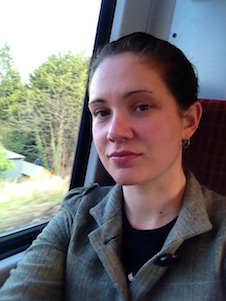 Wednesday 1 May 2019 8:32am
Wednesday 1 May 2019 8:32amAn Otago alumna has led a study into spinal surgery for children with cerebral palsy in the UK, which has proven it helps them walk and reduces pain, triggering the UK Government to fund the procedure.

Dr Jennifer Summers.
Dr Jennifer Summers, who completed her PhD in Public Health at the University of Otago, Wellington, in 2012, led the four-year study commissioned by the UK's NHS (National Health Service). It has just been published in the scientific journal, Lancet Child and Adolescent Health.
The study investigated the use of the surgical procedure known as selective dorsal rhizotomy or SDR together with two years of intensive physiotherapy on children with cerebral palsy to see if the children's walking ability would improve.
“Our study provided the evidence that SDR did improve walking ability and reduce pain and as a direct result, the NHS has now funded this surgery for eligible children in England,” Dr Summers says.
The NHS began funding the study for eligible children in mid-2018, following the research team's interim report of the study findings.
SDR is a neurosurgical procedure and involves cutting some of the sensory nerves from the legs as they enter the spinal cord. This is done with the aim of improving walking by reducing stiffness, improving mobility and reducing children's pain levels, Dr Summers explains.
“Sadly, SDR is not available in New Zealand and there are multiple fundraising pages of Kiwi kid's families trying to raise the money to have this treatment done privately in the USA or the UK.”
The Otago Daily Times today reported on a Dunedin family who are flying to the US on Friday to enable their 3-year-old son, Harry Finch, to have the surgery. Harry has spastic diplegia cerebral palsy, where the muscles in his legs are contracted, making it impossible for him to walk. His family has been fundraising the $150,000 needed for him to travel to the US to have the SDR surgery and physiotherapy.
The operation is irreversible and it had not previously been fully established whether it helped to improve children's quality of life, or what the longer-term effects were. Because of the lack of evidence of the benefits of the procedure, the King's College researchers were commissioned to undertake the research.
The study involved 137 young children and demonstrated consistent evidence that the procedure does improve motor function and does not have dangerous side effects. For some children with cerebral palsy it enabled them to walk more easily and without the use of walking frames and other aids. This improvement in function was also seen alongside clear improvement in quality of life, including pain reduction.
Dr Summers was born and raised in Lower Hutt, Wellington. She is currently a Research Fellow at King's College, London.
Read the paper in the Lancet Child and Adolescent Health journal:
Selective dorsal rhizotomy in ambulant children with cerebral palsy: an observational cohort study
For further information, contact
Dr Jennifer Summers
Post-Doctoral Research Fellow
King's College London
NZ is 11 hours ahead of the UK. Dr Summers is available 7.30pm Wednesday 1 May until 9.30am Thursday 2 May 2019, mobile contact is best.
Tel +020 7848 8687
Mob +0044 7550091072
Email jennifer.a.summers@kcl.ac.uk
Liane Topham-Kindley
Senior Communications Adviser
University of Otago
Tel +64 3479 9065
Mob +64 21 279 9065
Email liane.topham-kindley@otago.ac.nz
FIND an Otago Expert
Use our Media Expertise Database to find an Otago researcher for media comment.
